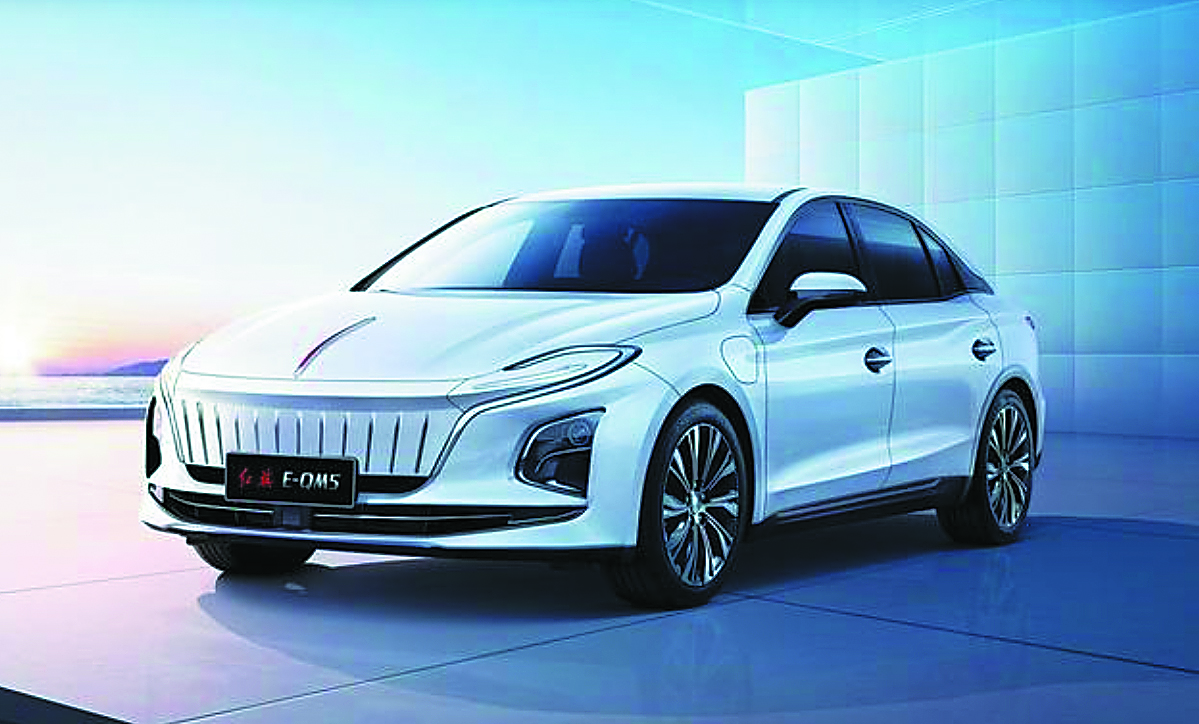FAW Hongqi launched the E-QM5 Plus pure electric sedan in Changchun, capital of Northeast China’s Jilin province, on Wednesday. The carmaker provides three variants of the sedan at prices starting from 122,800 yuan ($18,080). The E-QM5 Plus has maximum range of 605 kilometers while the E-QM5’s battery-charging and battery-swapping variants both have ranges of 431… Continue reading FAW Hongqi reveals E-QM5 Plus sedan
Tag: Mobility
@Fisker: Milken Institute Auctioning All-electric Fisker Ocean ONE at 2022 Hamptons Dialogues Benefiting Prostate Cancer Foundation 000096
LOS ANGELES–(BUSINESS WIRE)–Fisker Inc. (NYSE: FSR) (“Fisker”) – passionate creator of the world’s most sustainable electric vehicles and advanced mobility solutions – is bringing the Fisker Ocean to the Milken Institute’s 2022 Hamptons Dialogues. The non-partisan think tank will auction off a limited edition Fisker Ocean ONE to benefit the Prostate Cancer Foundation (PCF) at… Continue reading @Fisker: Milken Institute Auctioning All-electric Fisker Ocean ONE at 2022 Hamptons Dialogues Benefiting Prostate Cancer Foundation 000096
@Toyota: 2023 Toyota GR Corolla Named Official Pace Car for National Championships at Laguna Seca
The National Auto Sport Association (NASA) Championships This Year will be Paced by the 300-horsepower 2023 GR Corolla PLANO, Texas (Aug. 25, 2022) – Toyota unveiled its turbocharged and all-wheel drive 2023 GR Corolla this past Spring, expanding its Toyota Gazoo Racing performance model lineup and rewarding enthusiasts with this rowdy, rally inspired, 300-horsepower hot… Continue reading @Toyota: 2023 Toyota GR Corolla Named Official Pace Car for National Championships at Laguna Seca
Delhi plans one charging point for every 15 EVs by 2024
The New Delhi government has set itself a target of 25 percent for new passenger and two-wheeler sales to be electric by 2024 and also announced plans to install 18,000 charging stations during this three-year period. With its current rate of EV adoption at 10 percent being on a par with global EV capital like… Continue reading Delhi plans one charging point for every 15 EVs by 2024
Nothing Is Protecting Child Influencers From Exploitation
Jackie Coogan, America’s first major child star, shot to fame in 1921 as Charlie Chaplin’s adopted son in The Kid. But at the age of 21, after earning upward of $4 million through years of unforgiving hours on set, he learned his hard-earned fortune had already been squandered by his mother and stepfather. Coogan sued… Continue reading Nothing Is Protecting Child Influencers From Exploitation
West Michigan International Opens Michigan’s First Public Commercial Vehicle Charging Station
KALAMAZOO, Mich., Aug. 25, 2022 /PRNewswire/ — International® dealer West Michigan International announced the grand opening of Michigan’s first public electric commercial vehicle charging station at its Kalamazoo location. Located directly off I-94, one of the largest freight corridors in the Midwest, the new electric vehicle (EV) charging station is optimized for commercial vehicle charging and… Continue reading West Michigan International Opens Michigan’s First Public Commercial Vehicle Charging Station
@FCA: Chrysler Brand Charges Electrify Expo New York
August 25, 2022 , Auburn Hills, Mich. – Chrysler brand is putting a charge into Electrify Expo New York, bringing a fleet of Chrysler Pacifica Hybrid vehicles, as well as a large brand display, to the expo, scheduled to take place August 27-28, 2022, at Nassau Coliseum in Long Island, New York. Electrify Expo is… Continue reading @FCA: Chrysler Brand Charges Electrify Expo New York
Kongsberg Automotive signs a collaboration agreement with Chassis Autonomy in Sweden
Zurich, August 25, 2022: Kongsberg Automotive (KA) has signed a Letter of Intent (LOI) with the Swedish company Chassis Autonomy SBA AB and its UK affiliate Chassis Autonomy Limited on a potential long-term commercial collaboration for development, manufacture, and sales of groundbreaking electromechanical actuation products for autonomous vehicles. Chassis Autonomy specializes in design, development, and… Continue reading Kongsberg Automotive signs a collaboration agreement with Chassis Autonomy in Sweden
New partnerships in the field of autonomous trucks
Many companies are now cooperating with each other to bring autonomous driving into the transport industry for trucks. Already with the attempt to introduce autonomous driving in cars, formed blocks. Something similar seems to be happening in the truck sector. The pressure to develop is probably also growing because startups like TuSimple must catch up,… Continue reading New partnerships in the field of autonomous trucks
2023 Kia EV9 primed as premium electric range-topper
Kia will look to take on Range Rover with its new EV9 electric SUV, which is set to be revealed early next year before it comes to the UK. Spotted testing on European roads, where it has undergone hot- and cold-weather testing, the Kia EV9 will be the Korean brand’s largest European model so far,… Continue reading 2023 Kia EV9 primed as premium electric range-topper
